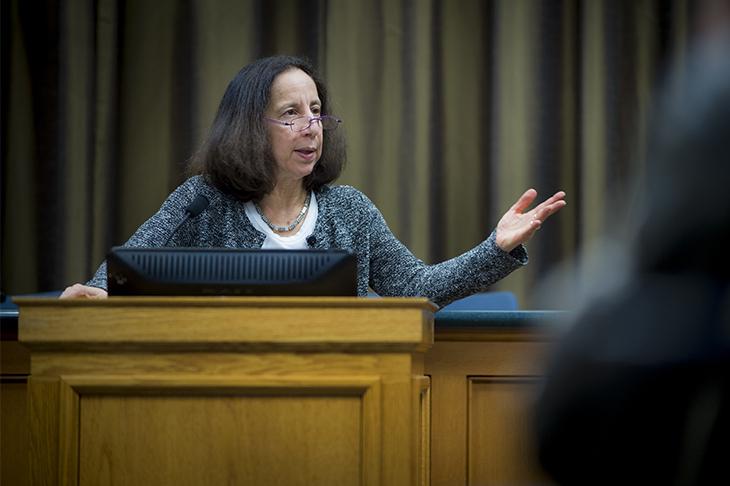Lecturer: Abortion rules must respect women’s dignity
State abortion regulations designed to protect the dignity of human life also must respect women’s dignity, Yale Law Professor Reva Siegel told a full-house audience at Tulane Law School on Monday (Feb. 22). But restrictions the U.S. Supreme Court is poised to hear arguments on March 2 don’t pass that test, she said during the Dermot S. McGlinchey Lecture on Federal Litigation.
The implications of Whole Woman’s Health v. Hellerstedt, No. 15-274, a Texas case that came through the New Orleans-based 5th U.S. Circuit Court of Appeals, extend much farther than abortion, she said: “The stakes here are not just women’s dignity but … the dignity of law.”
Since the Supreme Court upheld the constitutional right to abortion in the 1992 case of Planned Parenthood v. Casey, states have tried adopting various types of rules regulating the procedure. That’s because the Casey ruling allows government to protect the unborn as long as the restrictions don’t unduly burden the constitutional right that the court first announced in Roe v. Wade in 1973.
Lawmakers say the latest rules under challenge are meant to protect women’s health, but opponents argue they don’t have that effect but instead interfere with women’s rights by forcing clinics to close.
A three-judge 5th Circuit panel in June largely upheld a Texas law requiring abortion clinics to meet the medical standards of surgical facilities and that physicians at those clinics have admitting privileges at a hospital with 30 miles.
Siegel argued that courts shouldn’t just stand by as fundamental rights are eroded. “The courts are here to guard against constitutional double-talk,” she said.
Siegel said the right to abortion shouldn’t be allowed to expire through “death by a thousand cuts,” the kind of progressive chipping away that diminishes protections though not explicitly.
“What we’re calling for is honesty in what would be entailed in reversing the decision,” she said.
Linda P. Campbell is director of communications at Tulane Law School.

